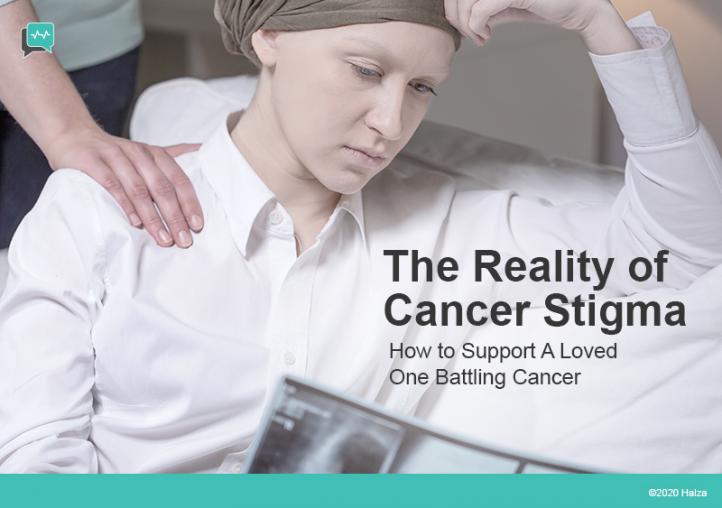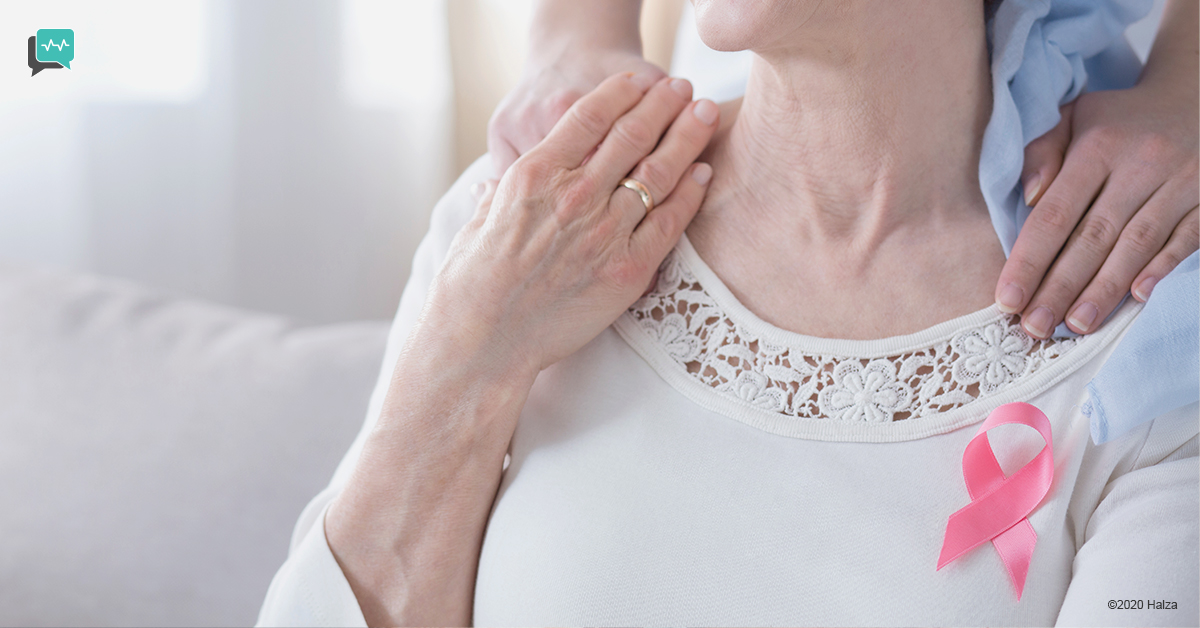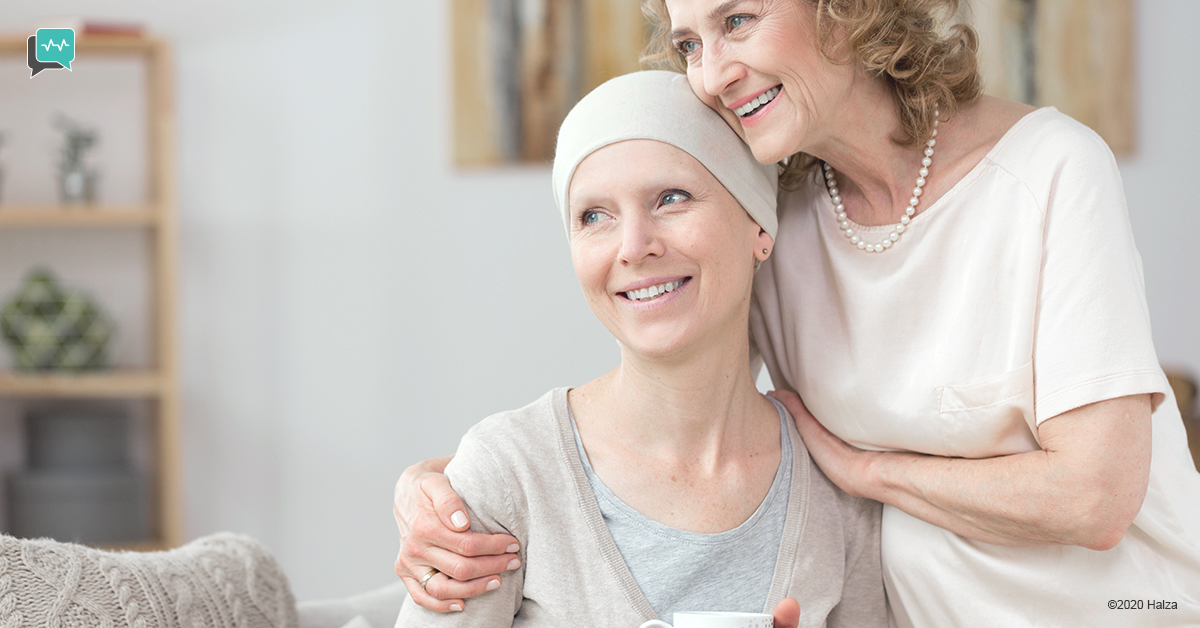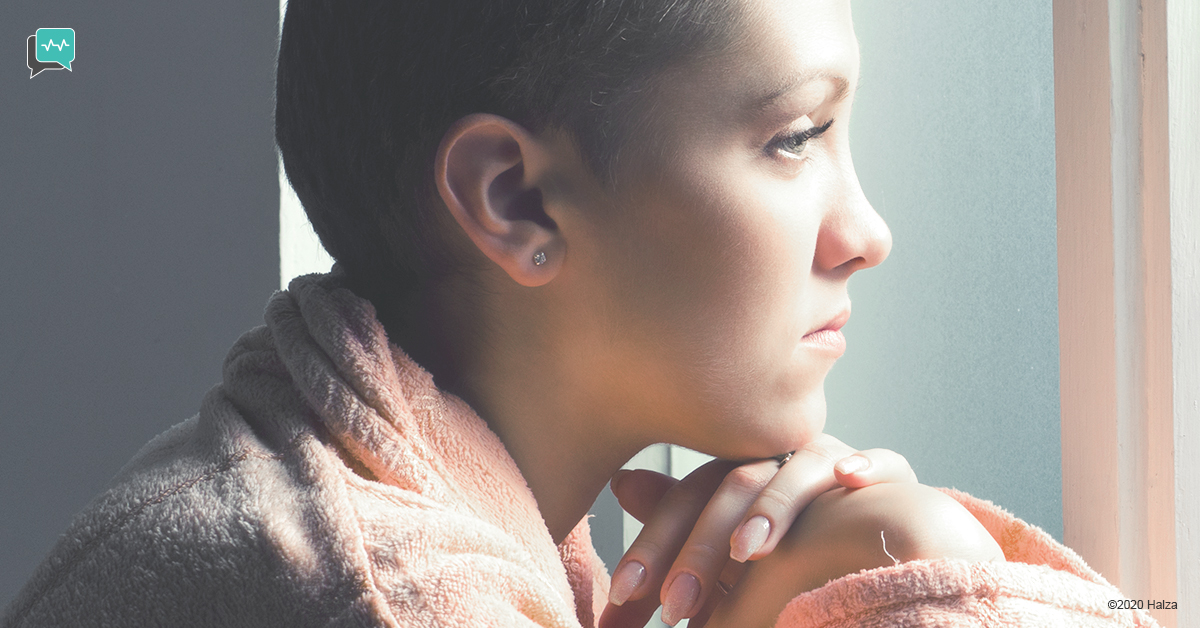The Reality of Cancer Stigma

No one deserves cancer. Yet, on top of the physical and emotional struggles
that having a cancer diagnosis poses, many patients still have to endure the preconceived attitudes and stigmas that surround cancer.
While we are making strides as a society towards eliminating cancer stigma through public awareness days like World Cancer Day, this stigma undoubtedly still exists. Cancer stigma comes about in many different forms and may affect different facets of a cancer patient’s everyday life, from their job to their relationships.
Loss of career opportunities
Many of us are shaped by the work we do. It may define some of us, instill a sense of pride in others, and even give us a sense of normalcy we might not even be aware of.
That is, until it is taken away.
Being diagnosed with cancer and sharing this news might strip a person of this all-important role. They might be delegated to less important work or removed completely due to their health, regardless of what they actually want. Renowned director and screenwriter Nora Ephron, for example, kept her cancer a secret from friends and colleagues for years due to the effect she knew it could have on her career.
Beyond losing a sense of purpose, restricted career opportunities could even end up affecting a person’s financial stability and their ability to afford treatment. Without a reliable source of income, the person may experience additional stress as they are burdened with hospital bills, disrupting their focus on beating the cancer.
Social isolation
Another way that stigma manifests is through the social isolation that a person with cancer might face.
This may not even be intentional. Many may not know how to react to their friend or family member’s cancer diagnosis. Given the association cancer has with death, especially in popular culture, many might think that it’s best to distance themselves from those with cancer and end up isolating the one person who needs support the most.
It has to be understood and made clear that cancer is not a death sentence.
The type of cancer diagnosed might also invoke judgmental attitudes and blame on the cancer sufferer; especially for cancers that affect the lungs or are known to be passed on through sexual activity. This is the last thing anyone living with cancer needs to experience. Having strong social connections to others have been linked to living a longer, healthier life.
Receiving emotional support and encouragement is essential to staying strong and beating cancer.
Delayed treatment
Some people might even internalize the stigma they witness around them, leading them to keep their cancer a secret and put off seeking treatment for fear of judgment or being shunned by their peers.
Sometimes, even cancer prevention options may carry a stigma. HPV-related cancers, like cervical cancer, can be prevented with the HPV vaccine. There is no correlation between getting vaccinated against HPV and being sexually promiscuous.
Yet, the vaccine is unfairly associated with sexual promiscuity and rejected by those who believe this association to be true, putting the sexual health of those around them at risk.
Cancers like penile cancer, which are relatively treatable, are another example. If caught early, the 5-year survival rate is about 85%. However, the stigma that surrounds penile cancer might cause men exhibiting symptoms of the condition to delay consulting a doctor for diagnosis and life-saving treatment.
Anyone should be free to seek treatment for their ailments without the risk of being judged or belittled.
Lack of resources
The stigma that people diagnosed with cancer face is not always on a personal level. Such stigma might even contribute to a lack of research funding for certain types of cancer, especially those cancers often thought of as “controllable”.
Despite being responsible for 32% of cancer deaths in the US, lung cancer research only receives 10% of cancer research funding. This lack of funding reflects the lack of societal support for those diagnosed with and fighting the cancer, in turn reinforcing the stigma these individuals face.
Having someone you love get diagnosed with cancer can be an overwhelming experience. Here are some suggestions on how you can support a family member or close friend battling cancer.
Related reading:
- What’s the second most common cancer in men?
- How can you support a partner with prostate cancer? Find out here.
- Learn about cervical cancer – the causes, symptoms, prevention and more.

Let them know they’re not alone
Understanding what they’re going through might give you insight into how to better support them. Reading up on their diagnosis and familiarizing yourself with their condition could alleviate any loneliness they might experience. It could also save them the trouble of constantly having to repeat the details of their condition.
Visiting them often can also help with any sense of isolation your loved one might feel. Plan your meetings in advance so they can be prepared. Be understanding if they want to postpone or cancel last minute if they suddenly don’t feel well enough to entertain a visitor.
Offer to help out with day-to-day tasks
A loved one might not have the energy to keep up with their regular, everyday tasks as they focus on their recovery. Similarly, their caregiver might not have the capacity to maintain these tasks as well.
Prevent small chores from slipping through the cracks by offering your assistance wherever possible. Things like making sure the house is kept clean, houseplants are watered, pets get walked, and household essentials are well stocked are a good start. Other tasks like offering to drive your loved one to their check-ups or appointments could also be helpful.

Brighten their day
On their road to recovery, a loved one’s days might be filled with trips to the hospital for chemotherapy and radiation, medication, and other restrictions. Help them retain a sense of normalcy by planning activities they enjoy. Remind them that they are more than the cancer they are fighting. Talk about other things besides their cancer, if they prefer.
If they like movies, bring over their favorite one (or even a new one they’ve been meaning to see but haven’t) and some snacks. If they love the serenity of nature, bring over a plant or take them for a walk at a nearby park, if they’re up for it.
Chatting with them and catching up on each other’s lives, interests, hopes, and dreams is also a great way to relive old memories and deepen the friendship with one another.

Listen
Simply listening to your loved one’s worries, concerns, and thoughts regarding their situation is a powerful way of making them feel less alone. Be engaged, in your responses, questions, and body language, but be aware of overpowering the conversation with too many questions.
In fact, you do not have to be afraid of and avoid moments of silence. If you do feel awkward or uncomfortable, try not to pretend otherwise as it might intensify the discomfort. Instead, you can tactfully bring up your feelings and try to work through them if the moment is right.
Sadness is a perfectly normal reaction to being diagnosed with cancer. If your loved one is expressing emotions like this, gently comfort them instead of being overly cheerful and trying to rid the air of any negative emotions.
Process your own emotions
Coping with the emotions of having a loved one be diagnosed with cancer can be difficult. This is especially so if you are someone who has trouble conveying your emotions. But it’s important to know that there is no right or wrong way to go about this – we all process our emotions differently.
Talking to a partner, trusted friend, a counselor/therapist, or even finding solace in peer groups or online forums could help you work through your feelings and help you provide better emotional support.
Ultimately, no matter how hard a time you have reacting to the diagnosis, it’s important to center your loved one’s emotions and experience with cancer when you are with them. Working through your thoughts and feelings before spending time with the person might help prevent an unexpected breakdown or something similar, which might negatively affect your loved one’s spirit.
Being there for a loved one fighting cancer requires resilience, patience, and empathy. It’s a tough job made harder by the fact that there is no single, correct path. But anticipating what your loved one needs, having clear communication with them and a deep understanding of their situation can help ease their road to recovery.
By overcoming societal perceptions of cancer and the accompanying stigma, we can provide better support for those fighting the disease.
Start by educating yourself and those around you and unlearning common misconceptions about cancer. Volunteer for organizations that aim to make life better for those diagnosed with cancer, especially those supporting cancers that are typically subject to more stigma. Donate to research funds if you can or raise awareness of such funds to those with the capacity to donate.
When we channel the energy we might have spent on stigmatizing towards ending the stigma and providing better support, we can eliminate cancer stigma.
Sources: NY Times – Cancer.org – Fortune
